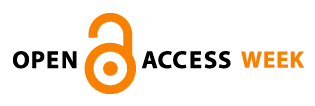Event Title
Readers' Copyright
Location
Undergraduate Library, Bernath Auditorium
Start Date
25-10-2011 2:00 PM
End Date
25-10-2011 3:00 PM
Description
An open lecture on reclaiming copyright for readers, listeners, and viewers, given by University of Michigan Law professor Jessica Litman.
A system of copyright protection makes little sense unless it is designed to encourage the use and enjoyment of the works it induces authors to create and publishers to disseminate. Litman argues that a clear-eyed examination of copyright's history reveals that solicitude for readers and members of the audience is, in fact, deeply encoded in copyright's DNA. Recently, readers' interests have faded in apparent importance in the copyright scheme in ways that have unbalanced the copyright system, and undermined public support for copyright law. In response to growing criticism of copyright, some of copyright law's most ardent supporters have insisted that users have no rights, should have no rights, and have never had rights in the copyright scheme. That approach, Litman suggests, is making the problem worse, not better. Copyright seems out of whack because it has forgotten its most important constituents. Litman takes a series of very small baby steps in the direction of recognizing rights and liberties within the copyright system for readers, listeners, viewers and other members of the copyright audience.
Readers' Copyright
Undergraduate Library, Bernath Auditorium
An open lecture on reclaiming copyright for readers, listeners, and viewers, given by University of Michigan Law professor Jessica Litman.
A system of copyright protection makes little sense unless it is designed to encourage the use and enjoyment of the works it induces authors to create and publishers to disseminate. Litman argues that a clear-eyed examination of copyright's history reveals that solicitude for readers and members of the audience is, in fact, deeply encoded in copyright's DNA. Recently, readers' interests have faded in apparent importance in the copyright scheme in ways that have unbalanced the copyright system, and undermined public support for copyright law. In response to growing criticism of copyright, some of copyright law's most ardent supporters have insisted that users have no rights, should have no rights, and have never had rights in the copyright scheme. That approach, Litman suggests, is making the problem worse, not better. Copyright seems out of whack because it has forgotten its most important constituents. Litman takes a series of very small baby steps in the direction of recognizing rights and liberties within the copyright system for readers, listeners, viewers and other members of the copyright audience.

Comments
Jessica Litman, the John F. Nickoll Professor of Law, is the author of Digital Copyright and the co-author, with Jane Ginsburg and Mary Lou Kevlin, of the casebook Trademarks and Unfair Competition Law: Cases and Materials.
Before rejoining the Michigan faculty in 2006, Professor Litman was professor of law at Wayne State University in Detroit, a visiting professor at New York University School of Law and at American University Washington College of Law, as well as a professor at the University of Michigan Law School from 1984-90. In addition, she has taught copyright law at the University of Tokyo as part of the Law Faculty Exchange Program. Professor Litman is a past trustee of the Copyright Society of the USA and a past chair of the American Association of Law Schools Section on Intellectual Property.
In addition to serving on the advisory board for the Public Knowledge organization, she is a member of the Intellectual Property and Internet Committee of the ACLU, the Advisory Council of the Future of Music Coalition, the advisory board of Cyberspace Law Abstracts, and the American Law Institute.
Professor Litman was a member of the Copyright Principles Project, an international working group of 20 copyright experts led by Berkeley's Pam Samuelson, which met for three years to discuss copyright reform, and published a report in theBerkeley Technology Law Journal advancing proposals for improving the copyright law. She graduated from Reed College, earned an MFA at Southern Methodist University, and holds a JD from Columbia Law School.